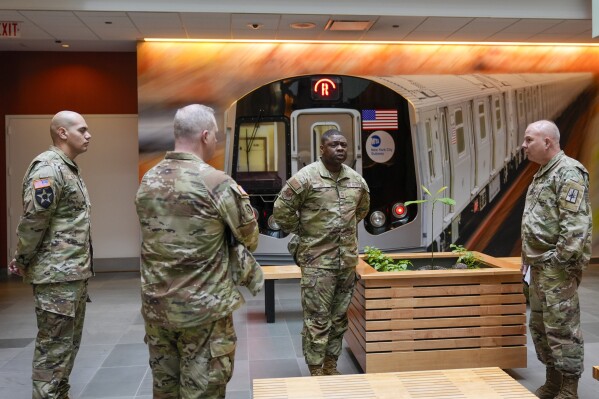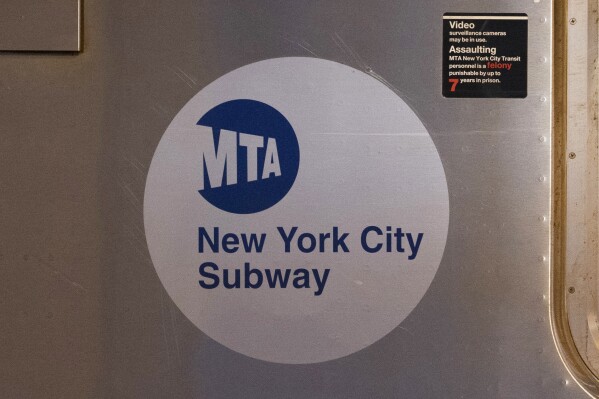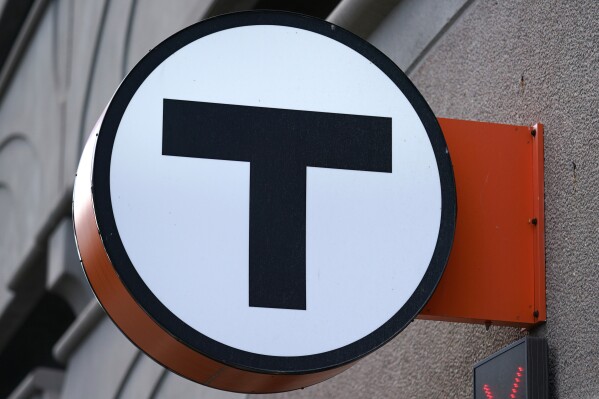Transit crime is back as a top concern in some US cities, and political leaders have taken notice
NEW YORK (AP) — Fear of crime on subways and buses is back as a top concern in some U.S. cities, and so are efforts aimed at persuading the public that officials are taking the issue seriously.
New York’s governor said Wednesday that she would deploy 750 members of the National Guard to help patrol the nation’s busiest subway system, saying she felt New York City police needed reinforcements after attacks including a shooting on a train platform and a conductor getting slashed in the neck.
In Pennsylvania, legislators created a special prosecutor to go after crimes committed in the transit system that serves the southeast of the state. Philadelphia Mayor Cherelle Parker on Thursday promised to beef up police patrols and use “every legal and constitutional tool” after a spate of transit-related shootings left three dead and 12 injured, many of them schoolkids.
“Enough is enough,” she said on WURD radio.
It remains to be ween whether such moves will have any affect on reducing crime in these massive public transit systems.
At least in New York, Gov. Kathy Hochul acknowledged that calling in the National Guard was as much about soothing fears and making a political statement as it was about making mass transit safer. The city’s subways, the Democrat said, were quite safe already. And felony crime hasn’t risen significantly. But a show of force might help dispel anxieties more than any statistic, she reasoned.



“If you feel better walking past someone in a uniform to make sure that someone doesn’t bring a knife or a gun on the subway, then that’s exactly why I did it. I want to change the psychology around crime in New York City,” Hochul said Thursday on MSNBC. “It is safe. But I’m going to make sure people feel safe.”
“I’m also going to demonstrate that Democrats fight crime as well,” she added. “So this narrative that Republicans have said that we’re soft on crime, that we defund the police — no.”
In New York, major crimes in the transit system dropped nearly 3% from 2022 to 2023 -- with five killings last year, down from 10 the year prior, according to police Overall, violent crime in the subway system is rare, with train cars and stations being generally as safe as any other public place.
In Pennsylvania, overall crime has declined on the transit system in recent years, though the Southeastern Pennsylvania Transportation Authority, or SEPTA, reported six killings in 2023, up from a total of seven during the previous three years.
Still, the issue of safety on buses and trains is one that keeps resonating with voters — particularly as some systems are still trying to recover from the COVID-19 pandemic, when passengers stayed away.
In New York, Republicans hammered Democrats on crime during the 2022 midterms, a message that helped the GOP capture some suburban congressional seats.
Vincent Del Castillo, a professor at John Jay College of Criminal Justice in Manhattan and a former chief of the city’s transit police, said the political tough talk tends to gloss over the reality that transit crime accounts for just a tiny percentage of all crime.
“You can have 10 to 12 murders in the system when there are literally hundreds across the city, but because it’s so rare, it gets a lot of attention,” said Del Castillo. “The subway is also everyone’s neighborhood. It doesn’t matter where on the line crime happens. It’s still scary.”
The four shootings on or linked to public transit facilities in Philadelphia began Sunday, when a 27-year-old man was shot and killed by another passenger shortly after they got off a SEPTA bus. The next day, a teenager was killed and four people injured in gunfire at a bus stop. On Tuesday, police said, someone who had just gotten off a bus in south Philadelphia fired back inside, killing a 37-year-old man.
And on Wednesday afternoon, eight teenagers waiting to take a city bus home after school were shot in an attack that also riddled a SEPTA bus with bullet holes.
Hours before the latest shooting, SEPTA Police Chief Charles Lawson said the transit agency would be putting more of its 230 officers on buses.
“We’re going to use every legal means at our disposal to target illegal gun possession on SEPTA,” Lawson said. “We’re going to target individuals concealing their identity. We’re going to target fare evasion. We’re going to target open drug use. We’re going to target every criminal code on the books, and when the law provides for our officers the ability to protect themselves through frisks, through learning if individuals are armed, we’re going to do that, in every case.”
The National Guard troops in New York City won’t be that active. They have been tasked with helping city police conduct random searches of people’s bags as they enter the subway system, a practice that has been in place for nearly two decades.
Passengers have the right to refuse the search, though if they do they can be asked to leave the subway system.
The National Guard troops are not allowed to make arrests, but if they witness a crime, they can detain someone until police arrive, just as any civilian can do.
Even though the Guard troops were deployed Thursday, New York City transit passengers might not have noticed. The troops weren’t widely visible at stations or in trains, though some were seen patrolling major hubs including Grand Central Terminal and Penn Station, where they have been a regular presence for many years as a terrorism deterrent.
Alex Piquero, a criminology professor at the University of Miami and the former director of the federal Bureau of Justice Statistics, said the heightened law enforcement presence — especially of armed, militarized units — can be a double-edged sword.
“For some people, they’d like to see the added security. They feel safer simply because there’s an officer there,” he said. “And for other people, they’ll say we’re overreacting. The truth is somewhere in the middle.”
___
Associated Press reporters Anthony Izaguirre and Michael Hill in Albany, Michael Sisak in New York City, Claudia Lauer in Philadelphia and Mark Scolforo in Harrisburg, Pennsylvania, contributed to this report.
___
Follow Philip Marcelo at twitter.com/philmarcelo.
Disclaimer: The copyright of this article belongs to the original author. Reposting this article is solely for the purpose of information dissemination and does not constitute any investment advice. If there is any infringement, please contact us immediately. We will make corrections or deletions as necessary. Thank you.






